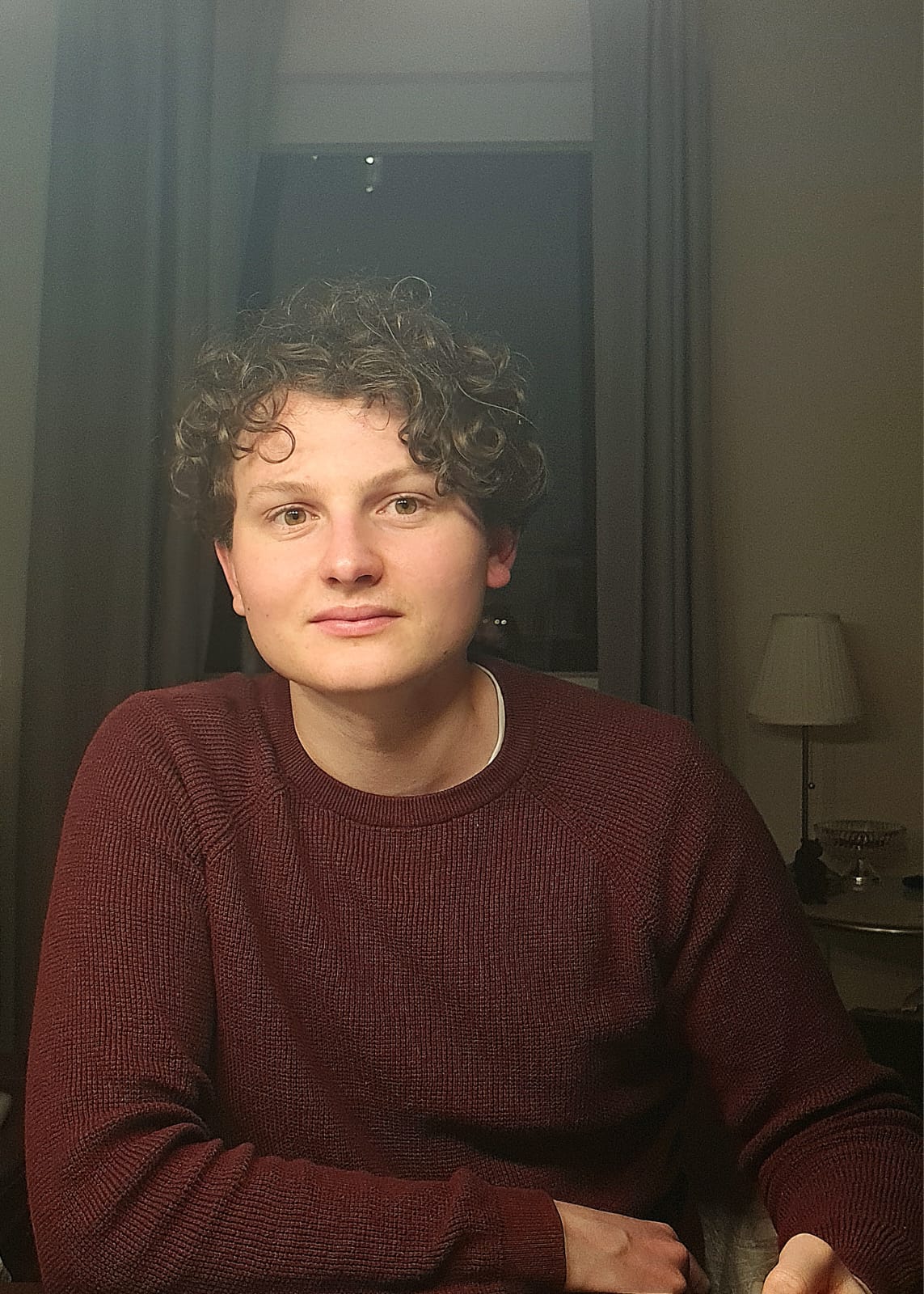7 Questions for Tim-Niklas Vesper
Tim-Niklas Vesper has been a PhD student at the Max Planck Institute for Legal History and Legal Theory since 2021. He already holds an M.A. in Constitutional, Social and Economic History from the Rheinische Friedrich Wilhelm Universität Bonn and a B.A. in Culture and Economy focusing on History and Economics from the University of Mannheim.
You are nearly done with your PhD project Regulation, normativity and organisation of corporate social policy. An interregional study of the German metal industry 1871–1932. What inspired you to write about your topic?
The choice of my topic was influenced mainly by the work on my master’s thesis during my studies in economic history. There I dealt with the construction of company housing by two different companies for their employees, and it gave me access to working with company sources. I was particularly impressed by the extent to which the living conditions and obligations of employees could be shaped by companies, even beyond the actual employment contract relationship, together with the provisions of social benefits. This inspired me to take a closer look at the normative foundations that structured employer-employee relationships outside of the actual production process. The joint project at the MPI, Non-state law of the economy. The normative order of industrial relations in the metal industry from the Empire to the early years of the Federal Republic of Germany, was therefore a perfect opportunity for me to build on this and look at the topic in a broader context. On the one hand, I was able to include different social benefits provided by companies – like health insurance funds, pension funds, premiums, vacation entitlement – in my research to gain an overall impression of corporate social policy and, on the other hand, I was able to visit several archives in different regions of Germany. I was particularly interested in the influences that structure and regulate social policy, even in smaller and less well-known companies, and which local or regional institutions and conditions play a role in this.
Both your PhD and the joint project involve the metal industry in the German Empire and Weimar Republic. How was it to find others working on similar research topics and how has working on the joint project shaped your perspectives on your own PhD?
The joint project played a major role in the development of a concept and for the work process. I was always in close contact with colleagues who, although pursuing their own specific topics and research questions, were all concerned with labor relations in the metal industry. The exchange within the project was therefore particularly helpful, as it highlighted common (legal) principles and conditions in our field of research. The studies of the other project members also broadened the perspective on my own work. The topics they dealt with, such as the development of work regulations, are not the focus of my dissertation. However, they have helped me to better understand socio-politically relevant constellations in the company, such as employment conditions or the co-determination of works councils, which also have a certain influence on the design and administration of social institutions in the company. On a very practical level, it has also been very productive that we have been able to draw synergies from our material collection and collect sources during archive visits in the interests of individual colleagues or all of us together. Finally, with its focus on “non-state law”, a normative order below state law, the project has also shaped the legal-historical perspective of my work. I am not only interested in determining which norms and rules applied in the area of the company as a social unit. In particular, I would also like to show what the processes were that led to the creation or modification of norms in the area of company social benefits and thus identify cooperation, influences and conflicts between relevant actors.
What has the digital humanities side of your joint project added to your research? Have there been any challenges?
The aim of our joint project was to create a source database in which standard texts from the field of company law are collected. These will be digitized and made available online so that they can be sorted by place or time, for example, or searched by keyword or using annotations. We focused primarily on labor regulations and collective agreements. Difficulties were encountered, e.g. when assigning clearly defined metadata for the overview in the database. For example, the sources often contain different dates, such as a date of origin, an approval date and sometimes several amendment dates. In many cases, companies could not be assigned to a specific metal industry sector because they had several production branches. We therefore had to determine and test a standardized procedure in such cases. When creating keywords and annotating the texts, we also noticed that it is very difficult to combine different types of sources into a common keyword tree due to their respective specifics. We therefore tested our annotations primarily on the basis of specific subject areas within work orders, which make up the majority of our source collection. For my work, our database offers the advantage that I can search certain types of sources more efficiently according to my interests. For example, I can filter many different collective agreements according to social benefits such as vacation provisions for employees and thus compare standards for vacation entitlements and conditions for granting vacations more quickly.
Has any book or figure been particularly influential or inspiring in your field?
For me personally, the work of the social and labor historian Thomas Welskopp is particularly important for how I understand a company as an object of study. For Welskopp, companies were social spaces of interaction within which all actors involved – including the workers, who are otherwise often degraded to subjects – are ascribed a certain social competence to act. These competencies are nevertheless dependent on specific work, power, communication and cooperation relationships. However, such relationships are not to be understood as one-sided, but rather form a network in different directions within the company. Central to those constellations is not only the question of disputes and conflicts, but also how the “formal and informal routine relationships” shaped the company as space of interaction. Welskopp therefore asks about not only the result of social negotiation processes, but also about the “how” of the conditions and paths that led to them. I personally find this kind of perspective fruitful when I examine normative constellations in the field of corporate social policy.
Similarly, is there any media or art which has shaped your research direction or interpretations?
It may not necessarily be understood as a medium or as art in the true sense of the word, but in some cases it is worth taking a look at architecture, at least for my field of research. The design of spaces often provides information about certain intentions of the builder and his associated normative ideas about the use of the space. In some cases, for example, the spatial design of company housing was intended to promote a self-contained middle-class family ideal within the working class. The adjoining kitchen garden was intended to predetermine leisure activities. This can also be seen in the divided social spaces on the factory premises, such as canteens, in which higher-ranking employees were often allocated their own higher-ranking room, separate from the workers, or a completely separate employees’ canteen was built. The social order in the factory was thus also reflected in the spatial structure.
What research topics would you like to explore in the future?
I don’t have an exact research project in mind yet. But I would be very interested in looking further into work structures, especially within smaller companies. The reality of life for the majority of workers was shaped in such companies, but we still have more detailed knowledge of the conditions in larger companies. It would be great if we could find out more about daily routines and the relationship between the workplace and its surroundings in these cases. Finding suitable sources is probably the main challenge here. I would also find it exciting to extend my knowledge of the organization and regulation of work beyond industrial labor relations. Labor relations in trade, crafts or agriculture were certainly subject to different normative principles. Perhaps this could be linked to questions that arose in our main project.
If you weren’t a legal historian, what would you like to be?
When I was at school, I always wanted to be a pilot. It’s difficult to say what I would do today if it wasn’t something related to history. I could imagine working in public administration, for example. Or doing something completely different with more of a connection to nature.
The interview was conducted by Julia Hütten.
Cite as: Vesper, Tim-Niklas: “…impressed by the extent to which the living conditions … of employees could be shaped by companies.”, legalhistoryinsights.com, 31.05.2024, https://doi.org/10.17176/20240603-164644-0



 This work is licensed under a
This work is licensed under a 